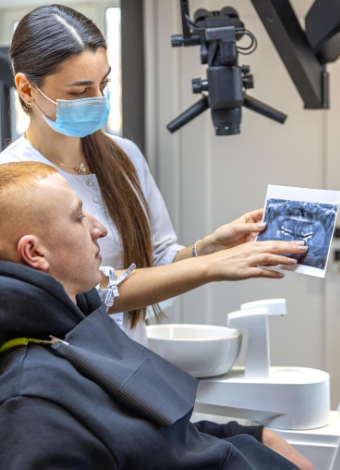Finding the Best Dentist in Toronto: Your Comprehensive Guide for 2025

Understanding Your Dental Needs
Before you even start looking at specific dentists in Toronto, it’s really important to take a step back and figure out exactly what your dental needs are. This isn’t just about knowing you need a cleaning; it’s about understanding the full scope of what you’re looking for in a dental practice. Finding the best dentist in Toronto starts with understanding your needs.
Assessing General Dental Care
Okay, so what does “general dental care” even mean? Well, it’s the stuff most people need regularly. Think of it as the foundation of good oral health. Here’s a quick rundown:
- Regular Check-ups: These are super important. They help catch problems early, like cavities or gum disease, before they become big, expensive issues.
- Cleanings: Getting your teeth professionally cleaned removes plaque and tartar that your toothbrush can’t handle. Plus, it makes your teeth feel nice and smooth!
- Fillings: If you do get a cavity (hey, it happens!), a filling will fix it and prevent further decay.
- X-rays: These let the dentist see what’s going on beneath the surface, like impacted wisdom teeth or bone loss.
Identifying Specialized Services
Sometimes, you need more than just the basics. That’s where specialized services come in. These address specific issues or help you achieve a certain look. Here are a few examples:
- Orthodontics: Braces or Invisalign to straighten your teeth.
- Cosmetic Dentistry: Think teeth whitening, veneers, or bonding to improve the appearance of your smile.
- Implants: Replacing missing teeth with artificial ones that look and function like the real deal.
- Periodontics: Treatment for gum disease, which can be serious if left untreated.
- Endodontics: Root canals to save infected teeth.
Considering Family Dentistry
If you have a family, finding a dentist who can treat everyone – from your toddler to your teenager to yourself – can be a huge convenience. Family dentists are usually good at:
- Treating patients of all ages: They’re comfortable working with kids, teens, and adults.
- Preventive care for children: Teaching kids good oral hygiene habits early on.
- Managing different dental needs within a family: From braces for your teen to dentures for grandma, they can handle it all.
- Creating a comfortable environment for everyone: Especially important for kids who might be nervous about going to the dentist.
Researching Dentists in Toronto
Okay, so you’re ready to find a dentist in Toronto. That’s great! But where do you even start? It can feel like a huge task, but don’t worry, it’s totally doable. This section is all about how to research dentists in Toronto effectively. We’ll cover online resources, checking credentials, and reading those all-important patient reviews. Let’s get started!
Utilizing Online Resources
The internet is your friend! Seriously, there are tons of resources online to help you find the perfect dentist. Here are a few ideas:
- Google is your friend: A simple search like “dentists in Toronto” will give you a massive list. Start there and narrow it down by neighborhood or specialty.
- Check out the Ontario Dental Association (ODA) website: They have a directory of licensed dentists in the province. It’s a good way to make sure someone is legit.
- Use online review sites: Sites like Yelp, Google Reviews, and RateMDs can give you a sense of what other patients think. Just remember to take everything with a grain of salt – everyone’s experience is different.
Checking Professional Credentials
This is super important. You want to make sure your dentist is qualified and in good standing. Here’s how to do it:
- Verify their license: You can usually do this through the Royal College of Dental Surgeons of Ontario (RCDSO) website. It’s a quick way to check if they’re licensed to practice in Ontario.
- Look for board certifications: If you need a specialist (like an orthodontist or periodontist), check if they’re board-certified in their specialty. This means they’ve met certain standards of education and training.
- See where they went to school: Knowing where a dentist got their education can give you a sense of their background and training. It’s not the only thing that matters, but it’s good information to have.
Reading Patient Reviews
Patient reviews can be really helpful, but it’s important to read them critically. Here’s what to keep in mind:
- Look for patterns: Don’t focus on one glowing review or one terrible one. Look for recurring themes. Do people consistently praise the dentist’s bedside manner? Do they often complain about long wait times?
- Consider the source: Reviews on the dentist’s own website might be filtered, so look for reviews on independent sites for a more balanced view.
- Pay attention to details: Vague reviews like “Great dentist!” aren’t very helpful. Look for reviews that give specific examples of the dentist’s care and the patient’s experience.
Evaluating Dental Practices
Choosing the right dentist involves more than just finding someone nearby. It’s about finding a practice that aligns with your needs and values. Evaluating dental practices thoroughly is key to a positive experience. Let’s explore what to look for when assessing different dental offices in Toronto.
Visiting the Office Environment
First impressions matter! When you walk into a dental office, take note of the overall atmosphere. Is it clean, organized, and inviting? A well-maintained environment suggests the practice prioritizes hygiene and patient comfort. Here’s what to consider:
- Cleanliness: Are the waiting areas and treatment rooms spotless? This is a big one.
- Modern Equipment: Does the office have updated technology, like digital X-rays? It can make a difference in your care.
- Ambiance: Does the office feel welcoming and calming, or sterile and intimidating? A calming environment can really help with dental anxiety.
Assessing Staff Professionalism
The staff can make or break your experience. Are they friendly, helpful, and knowledgeable? Do they seem genuinely interested in your well-being? Here are some things I always look for:
- Communication: Do they answer your questions clearly and patiently? Good communication is so important.
- Respect: Do they treat you with respect and make you feel comfortable? You should feel valued as a patient.
- Efficiency: Are they organized and efficient in managing appointments and paperwork? Nobody likes waiting around forever.
Understanding Treatment Options
A good dental practice will take the time to explain your treatment options clearly and answer any questions you have. They should also be transparent about costs and payment plans. Here’s what to consider:
- Comprehensive Care: Does the practice offer a wide range of services, from routine cleanings to specialized treatments?
- Personalized Plans: Do they tailor treatment plans to your specific needs and preferences?
- Education: Do they educate you about your oral health and preventive care strategies? Understanding your options is key to making informed decisions.
The Cost of Dental Services in Toronto
Alright, let’s talk money. When it comes to dental care, understanding the cost is super important. Nobody wants to be hit with a surprise bill after a check-up. So, what can you expect to pay for dental services in Toronto?
Average Costs of Common Procedures
Okay, so prices can vary, but here’s a general idea of what some common procedures might set you back. Keep in mind that these are just averages, and your dentist’s office might charge a bit more or less.
- Basic Cleaning: This is usually in the ballpark of $100-$150. It’s the standard cleaning you get every six months.
- Check-up Exam: A regular check-up, where the dentist pokes around and checks for cavities, might cost around $30-$50.
- Fillings: Fillings can vary a lot depending on the material (amalgam vs. composite) and the size of the cavity. Expect to pay anywhere from $150 to $400+ per filling.
- Root Canals: These are the big ones. A root canal on a molar can easily cost $800-$1200 or even more, while a front tooth might be a bit less.
- Extractions: Simple extractions might be around $150-$250, but complicated ones, like wisdom teeth, can be significantly more.
Insurance Coverage Insights
Dental insurance can be a lifesaver, but it’s important to know what your plan covers. Most plans have annual maximums, deductibles, and co-pays. Here’s the deal:
- Know Your Plan: Read the fine print! Understand what procedures are covered, what percentage they cover, and what your annual maximum is.
- Pre-Approval: For major work, like crowns or implants, it’s often a good idea to get pre-approval from your insurance company. This way, you know exactly how much they’ll cover.
- Direct Billing: Many dental offices offer direct billing to insurance companies, which means they’ll handle the paperwork for you. It’s super convenient.
Budgeting for Dental Care
Dental care isn’t always cheap, so it’s smart to plan ahead. Here are a few tips for budgeting:
- Regular Check-ups: Prevention is key! Regular check-ups can catch problems early, before they become expensive.
- Payment Plans: Some dental offices offer payment plans, which can make larger procedures more manageable.
- Dental Savings Accounts: Consider setting up a dedicated savings account for dental expenses.
- Community Clinics: If you’re on a tight budget, look into community dental clinics. They often offer lower-cost services.
Top Dentists in Toronto
Finding the right dentist in Toronto can feel like a big task. There are so many options, and it’s important to find someone you trust and who meets your needs. This section highlights some leading dental clinics and notable dentists in the city, along with insights into what makes them stand out.
Highlighting Leading Dental Clinics
Okay, so here’s the deal. There are a bunch of dental clinics in Toronto, but some consistently get good buzz. What makes a clinic “leading” anyway? Well, it’s usually a mix of things:
- Modern Tech: Clinics that use the latest equipment and techniques tend to be at the forefront. Think digital X-rays, 3D printing for crowns, and laser dentistry.
- Wide Range of Services: A good clinic offers everything from basic cleanings to more complex procedures like implants and cosmetic work.
- Patient Comfort: Let’s be real, nobody loves going to the dentist. But a clinic that prioritizes patient comfort, with things like a relaxing atmosphere and friendly staff, makes a big difference.
Notable Dentists and Their Specialties
Toronto has some seriously skilled dentists. It’s not just about general dentistry anymore; many dentists focus on specific areas. For example:
- Cosmetic Dentistry: These dentists specialize in improving the appearance of your smile. This could include teeth whitening, veneers, or even something like invisalign in toronto.
- Implant Dentistry: If you’re missing teeth, an implant dentist can help restore your smile with permanent, natural-looking replacements.
- Pediatric Dentistry: These dentists focus on the unique dental needs of children, making sure they have a positive experience from a young age.
Patient Testimonials and Experiences
What are other people saying? Patient reviews can be super helpful when choosing a dentist toronto. Look for patterns in the reviews. Do people consistently praise a dentist’s gentle touch? Or rave about how well the staff explains procedures? Keep an eye out for:
- Consistent Praise: If multiple people mention the same positive qualities, that’s a good sign.
- Specific Examples: Reviews that give specific examples of good (or bad) experiences are more helpful than generic statements.
- Overall Vibe: Get a sense of the overall patient experience. Do people feel heard and respected? Or do they feel rushed and dismissed?
Making Your First Appointment
So, you’ve done your research and found a dentist in Toronto that seems like a good fit. Now what? Making your first appointment is a big step toward maintaining your dental health. This section will guide you through the process, from knowing what to expect to preparing the right questions.
What to Expect During Your Visit
Okay, so you’ve booked your appointment. What happens when you actually get there? Here’s a breakdown:
- Initial Paperwork: Expect to fill out forms about your medical history, current medications, and dental insurance. Be thorough! The dentist needs this info to provide the best care.
- Meeting the Team: You’ll likely meet the receptionist, dental assistant, and, of course, the dentist. They’ll introduce themselves and explain the process.
- Comprehensive Examination: The dentist will examine your teeth, gums, and mouth. This usually includes checking for cavities, gum disease, and other potential issues. They might also take X-rays to get a better look at what’s going on beneath the surface.
- Cleaning: A dental hygienist will clean your teeth, removing plaque and tartar. They’ll also floss and polish your teeth.
Preparing Questions for Your Dentist
Don’t be shy! Your first appointment is the perfect time to ask questions and address any concerns you have. Here are some ideas:
- Treatment Options: Ask about different treatment options for any issues the dentist finds. What are the pros and cons of each?
- Oral Hygiene Routine: Get personalized advice on how to improve your brushing and flossing technique. What kind of toothbrush and toothpaste do they recommend?
- Long-Term Care: Discuss a plan for maintaining your dental health in the long run. How often should you come in for check-ups?
- Cost and Insurance: Make sure you understand the cost of any recommended treatments and how your insurance coverage works.
Understanding Treatment Plans
After your examination, the dentist will likely present you with a treatment plan. This plan outlines any necessary procedures, their estimated costs, and the recommended timeline. Make sure you understand everything before moving forward.
- Review the Plan Carefully: Don’t hesitate to ask for clarification on anything you don’t understand. What are the risks and benefits of each procedure?
- Discuss Alternatives: If you’re not comfortable with the proposed treatment plan, discuss alternative options with your dentist. Is there a less invasive or more affordable approach?
- Get a Written Estimate: Always get a written estimate of the costs involved before starting any treatment. This will help you budget and avoid surprises later on.
- Payment Options: Ask about payment options, such as payment plans or financing, if you’re concerned about the cost of treatment.
Maintaining Long-Term Dental Health
Okay, so you’ve found a dentist in Toronto, had your first appointment, and maybe even started some treatment. What’s next? It’s all about maintaining long-term dental health. Think of it as a marathon, not a sprint. It’s not just about fixing problems as they pop up, but preventing them in the first place. This section will cover the importance of regular check-ups, preventive care strategies, and what to do in case of a dental emergency. Let’s keep that smile shining for years to come!
Importance of Regular Check-Ups
Regular dental check-ups are super important. I mean, really important. It’s like taking your car in for an oil change – you might not see anything wrong, but a professional can spot potential problems before they become major headaches. Here’s why you should stick to those appointments:
- Early Detection: Dentists can catch cavities, gum disease, and even oral cancer in their early stages, when they’re much easier to treat.
- Professional Cleaning: No matter how well you brush and floss, there are always those hard-to-reach spots where plaque and tartar can build up. A professional cleaning removes these deposits, keeping your teeth and gums healthy.
- Personalized Advice: Your dentist can give you tailored advice on how to improve your oral hygiene based on your specific needs and risk factors.
Preventive Care Strategies
Preventive care is all about stopping problems before they start. It’s a team effort between you and your dentist. Here are some key strategies to incorporate into your daily routine:
- Brush Twice a Day: Use fluoride toothpaste and brush for at least two minutes each time. Don’t forget to brush your tongue, too!
- Floss Daily: Flossing removes plaque and food particles from between your teeth, where your toothbrush can’t reach. Get in there!
- Limit Sugary Drinks and Snacks: Sugar feeds the bacteria in your mouth that cause cavities. Try to cut back on sugary drinks and snacks, and brush your teeth after consuming them.
- Consider Fluoride Treatments: Fluoride strengthens tooth enamel and makes it more resistant to decay. Your dentist may recommend fluoride treatments, especially if you’re at high risk for cavities.
Emergency Dental Services
Dental emergencies can happen at any time, and it’s important to know what to do. Here’s a quick rundown:
- Common Emergencies: These include severe toothaches, broken or knocked-out teeth, lost fillings or crowns, and infections.
- Immediate Action: For a knocked-out tooth, gently rinse it with water (don’t scrub) and try to reinsert it into the socket. If that’s not possible, store it in milk and get to a dentist ASAP. For other emergencies, rinse your mouth with warm water and apply a cold compress to reduce swelling.
- Finding Help: Know where to go for emergency dental care. Some dental offices offer after-hours services, or you can visit a hospital emergency room.
Wrapping It Up
So there you have it! Finding the right dentist in Toronto doesn’t have to be a headache. Just remember to think about what you need, do a little research, and maybe even visit a few places before making your choice. Your dental health is super important, and having a good dentist can really make a difference. Whether you’re looking for a family-friendly office or a specialist for something specific, there are plenty of great options out there. Don’t wait too long to make that appointment—your smile will thank you!




